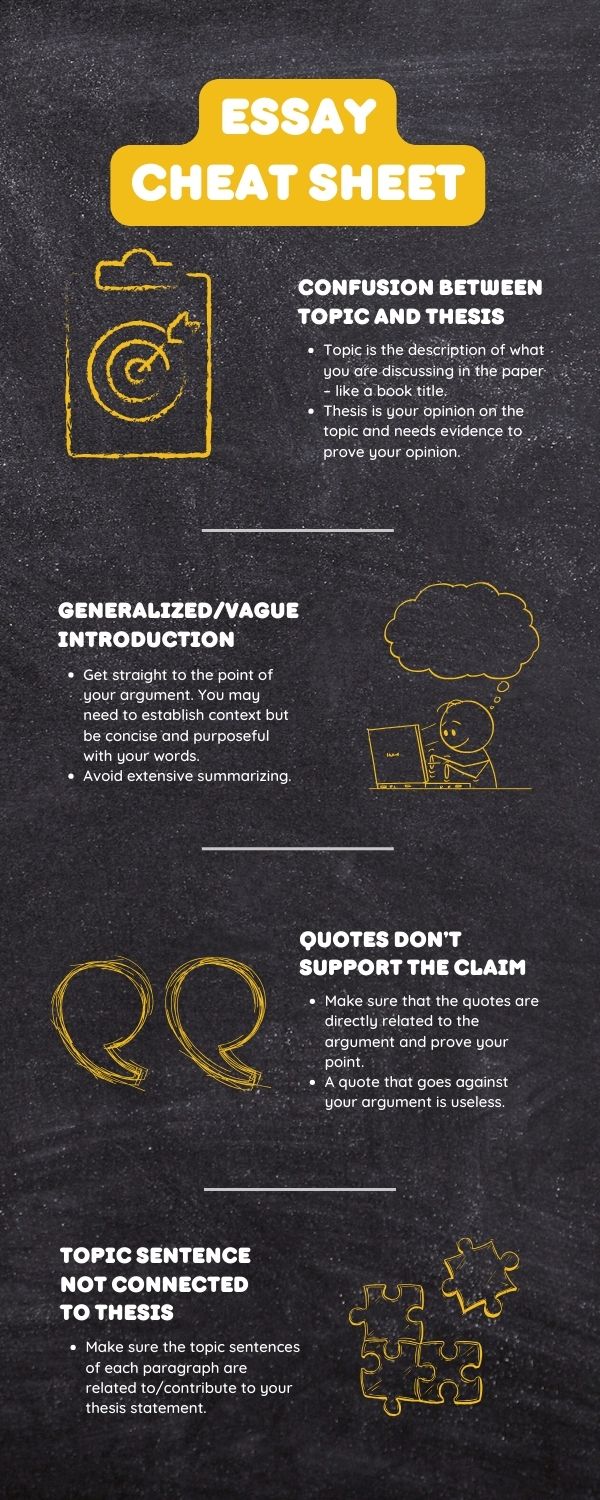I don’t know about you, but whether I do well in my assignments or not I’m always anxious about receiving feedback. This anxiety is natural, but feedback is an essential aspect of your university experience!
Four years in the English & Professional Writing program has taught me to take, analyze and implement instructor feedback to improve future assignments. Here are three strategies to use feedback to your advantage.
1. Change your mindset
Writing is personal and we’re often super attached to our words. And feedback can sometimes be confusing, vague or even harsh. Remember that it isn’t personal! Your instructors are commenting on your work, and not on you.
Something I find helpful when I review feedback is to separate myself from my work.
Pro tip: I like to look at my assignment as if I am an outsider reading someone else’s work. This change in mindset helps me focus on the feedback and not my emotions.
Also, consider that your argument or opinion could benefit from alternative viewpoints. Yes, we put in a lot of effort researching, reading, analyzing theories and forming arguments that we think are foolproof. However, even though we’ve researched the topic, our knowledge may not be complete.
Pro tip: Read feedback with an open mind. It’ll help you think critically and recognize different perspectives.
2. Identify areas of improvement
To identify your major problem areas, compare a few of your assignments and look for any feedback that appears consistently. Remember that you may have other minor problem areas too. Don’t discount those!
Pro tip: If you are confused about your instructor’s comments, reach out to them to clarify your doubts. That way, you can get more detailed feedback and ask questions!
One piece of feedback that I consistently received in first year was, “How does this connect to your main idea?” This was my biggest problem area. I realized that while my ideas were all related to the main point, I did not write it in a way that established the connection. Sometimes we are unable to articulate the ideas in our head effectively onto the page.
Pro tip: If you’re looking for help with communicating your ideas, book an appointment with the Writing Centre! Their writing instructors can help you work through your thoughts and provide strategies for writing effectively.
3. Create a success cheat sheet
Once you’ve compared your assignments, make a list of all the feedback you’ve received, including feedback related to arguments and explanations, grammar and punctuation, quotations and citations. This list, or as I like to call it, a success cheat sheet, can guide you in your next assignment.
Pro tip: Include examples from your assignments against the feedback for context.
I don’t usually include examples anymore because I’ve been using this method for a long time, but if this is the first time you’re implementing this strategy, you may find the examples helpful!
Here’s a screenshot of what my cheat sheet looks like.

